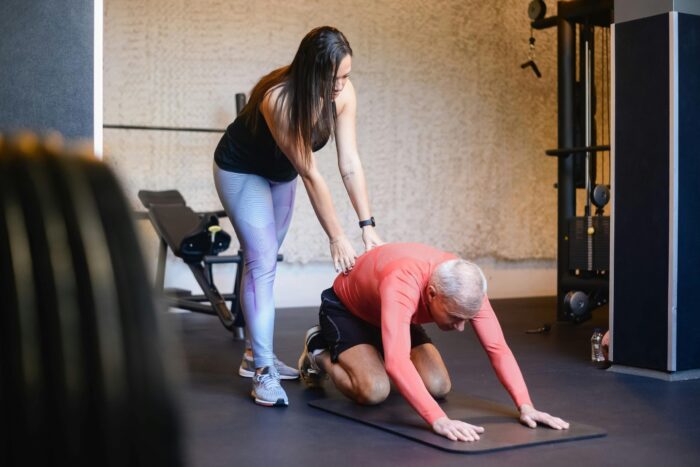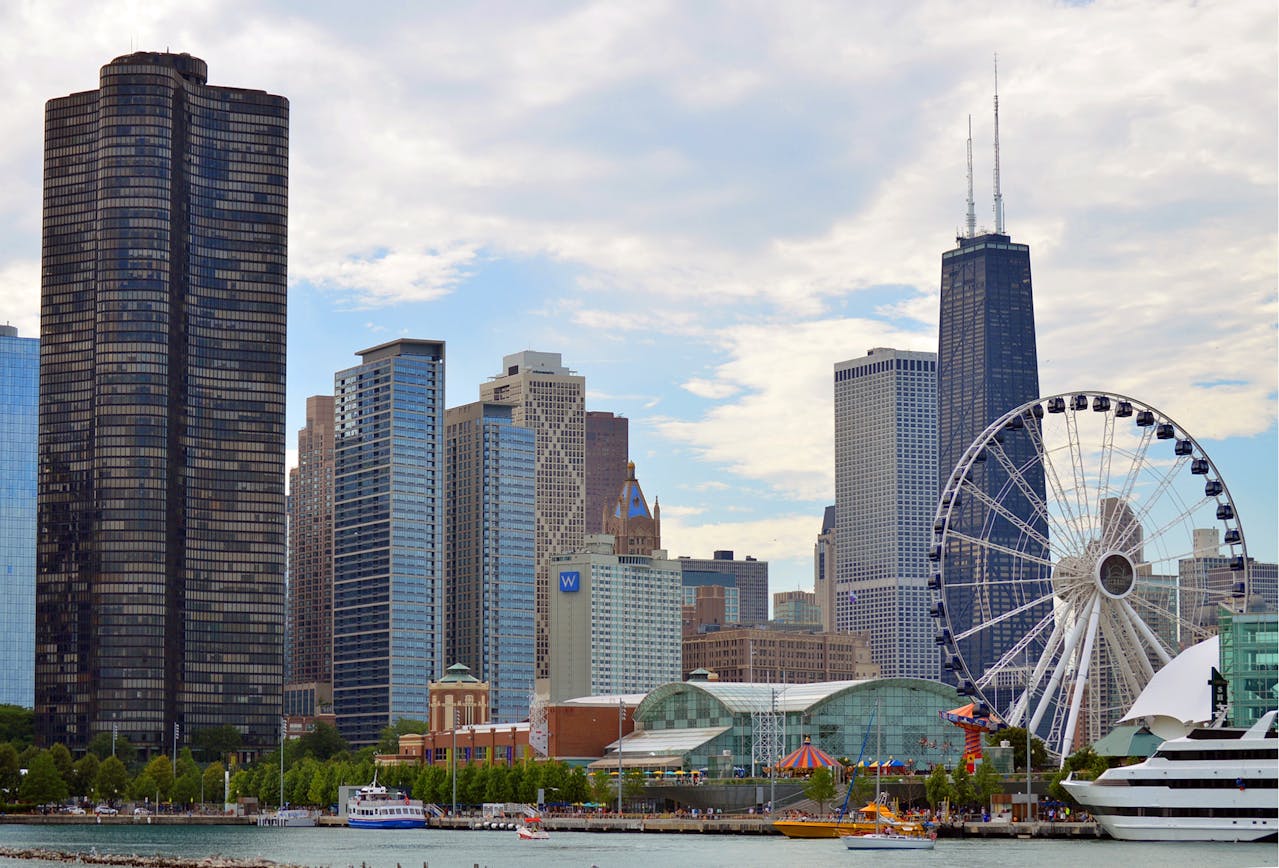What is Cedars-Sinai known for?
Cedars-Sinai is renowned as one of the leading healthcare institutions in the United States, located in Los Angeles, California. It is known for its cutting-edge medical research, high-quality patient care, and specialized treatments in fields such as cardiology, neurology, cancer care, and orthopedics. The hospital has a prestigious reputation for treating complex medical cases and is a trusted provider for both routine and advanced medical services. Cedars-Sinai is also recognized for its strong commitment to medical education and innovation, playing a significant role in advancing healthcare practices globally through its research and academic programs.

Historical Context and Evolution of Senior Care at Cedars-Sinai
Cedars-Sinai’s journey into senior care has evolved in parallel with broader trends in healthcare. Originally founded in 1902 as a 12-bed hospital by a group of women from the Jewish community, Cedars-Sinai has since become one of the largest nonprofit hospitals in the Western United States. Its evolution into a center of excellence for senior care reflects changing demographics and the rise of chronic health conditions associated with aging populations.
The hospital’s commitment to geriatric care grew significantly in the late 20th century, responding to an increasing number of elderly patients requiring specialized care. This shift is part of a broader national trend as healthcare systems across the U.S. have expanded their services to meet the needs of older adults. Cedars-Sinai responded by developing innovative programs, investing in geriatric medicine, and creating interdisciplinary care models aimed at enhancing the quality of life for seniors.
The Geriatric Division at Cedars-Sinai
One of the most notable initiatives Cedars-Sinai has undertaken is the development of a dedicated Geriatric Division. The geriatric team at Cedars-Sinai offers comprehensive care that is tailored to the specific needs of older adults. This division focuses on preventing, diagnosing, and managing conditions common in aging populations, such as dementia, heart disease, diabetes, arthritis, osteoporosis, and mobility issues.
The team consists of geriatricians-physicians who specialize in the care of older adults-alongside nurses, social workers, and therapists. Together, they form a multidisciplinary unit that approaches senior care holistically. This integrated approach ensures that all aspects of a senior’s health are considered, including physical, mental, and social well-being.
Personalized Care Plans for Seniors
Cedars-Sinai places a strong emphasis on personalized care plans. For seniors, the hospital recognizes that health issues often extend beyond immediate medical needs and include a combination of chronic conditions, functional impairments, and even social challenges. To address this, Cedars-Sinai’s geriatric care providers develop individualized treatment plans that not only manage chronic diseases but also focus on maximizing functional independence, reducing hospitalizations, and enhancing quality of life.
Each senior patient is treated based on a full health evaluation that includes assessments of mobility, nutrition, mental health, and social support networks. This comprehensive health evaluation allows the care team to design a tailored plan that might include anything from medication adjustments and physical therapy to social services, which are critical for seniors facing isolation or mental health challenges.
Geriatric Primary Care
Geriatric primary care at Cedars-Sinai is rooted in the understanding that seniors have different needs compared to younger adults. Providers are skilled in handling complex medication regimens, managing multiple chronic conditions, and offering preventive care to avert the onset of additional health problems. Routine visits with geriatricians allow for ongoing monitoring and adjustment of treatment plans, ensuring that seniors receive the care they need in a proactive and comprehensive manner.
Addressing Dementia and Cognitive Decline
One of the most critical areas in senior healthcare is the management of dementia and cognitive decline. Cedars-Sinai is deeply invested in providing both the care and research necessary to support seniors experiencing cognitive challenges. With conditions like Alzheimer’s disease on the rise, the hospital’s Memory and Aging Program offers cutting-edge diagnostics and treatment options.
Memory and Aging Program
Cedars-Sinai’s Memory and Aging Program takes an interdisciplinary approach, combining expertise in neurology, psychiatry, and geriatrics to address memory loss and other cognitive issues. The program offers comprehensive assessments that include neurological evaluations, imaging studies, and cognitive testing. These tools help physicians accurately diagnose the type and severity of cognitive impairment, which is crucial for developing an effective treatment plan.
The program also places a strong emphasis on family education and support. Recognizing that dementia affects not just the patient but the entire family, Cedars-Sinai provides resources to help families understand the progression of the disease and offers practical advice on caregiving. This support is vital in reducing caregiver burden and improving the overall care experience for both the patient and their family.
Research and Clinical Trials on Cognitive Decline
As a leading research institution, Cedars-Sinai is at the forefront of investigating new treatments for dementia and cognitive decline. The medical center is involved in clinical trials aimed at testing innovative therapies, including medications that could slow the progression of Alzheimer’s and other forms of dementia. For seniors and their families, participation in these clinical trials provides access to the latest advancements in treatment, often years before they become widely available.
Chronic Disease Management for Seniors
A significant portion of Cedars-Sinai’s senior care efforts is focused on the management of chronic diseases. Conditions such as heart disease, diabetes, hypertension, and arthritis are prevalent among the elderly and require careful, ongoing management to prevent complications. Cedars-Sinai offers a comprehensive set of services aimed at helping seniors manage these conditions effectively, ensuring they maintain their independence and quality of life.
Cardiology and Heart Health
Cedars-Sinai’s Smidt Heart Institute is one of the top cardiovascular programs in the country. For seniors, managing heart disease can be particularly challenging due to the interplay of other age-related health conditions. The cardiology team at Cedars-Sinai provides specialized care for seniors, ranging from medication management to advanced surgical interventions, such as valve replacement and heart bypass surgery.
Moreover, the institute offers preventive care services aimed at reducing the risk of heart disease in seniors. This includes lifestyle interventions, such as nutrition counseling and exercise programs designed specifically for older adults. Cedars-Sinai recognizes that managing cardiovascular health is not just about treating existing disease but also about preventing future complications through a proactive, preventive approach.
Diabetes and Endocrinology
Cedars-Sinai also offers specialized care for seniors with diabetes, a condition that affects a significant percentage of the elderly population. The hospital’s endocrinology division provides comprehensive diabetes management services, including medication optimization, insulin therapy, and education on blood sugar monitoring and diet. This specialized care helps seniors manage their diabetes effectively, reducing the risk of complications such as nerve damage, kidney failure, and vision problems.
Mobility, Rehabilitation, and Fall Prevention
One of the greatest challenges seniors face is maintaining mobility and independence. Cedars-Sinai offers a range of services aimed at helping seniors stay active, recover from injuries, and prevent falls-one of the leading causes of injury among older adults.
Physical Therapy and Rehabilitation
Cedars-Sinai’s physical therapy and rehabilitation services are tailored to seniors who have experienced a decline in mobility due to surgery, injury, or chronic conditions such as arthritis. The rehabilitation team works closely with patients to develop exercise programs that strengthen muscles, improve balance, and enhance coordination, all with the goal of helping seniors regain their independence.
Fall Prevention Programs
Recognizing the significant risk that falls pose to seniors, Cedars-Sinai has developed fall prevention programs that focus on assessing and mitigating the risk factors for falls. These programs include home safety evaluations, balance training, and education on the use of assistive devices such as canes or walkers. The goal is to reduce the number of falls and subsequent injuries, which are often a major cause of disability and reduced quality of life in seniors.
Supportive Services for Seniors
Cedars-Sinai understands that senior healthcare extends beyond physical health and includes emotional and social support. The hospital offers a range of supportive services designed to address the broader needs of seniors.
Palliative Care and End-of-Life Planning
For seniors with serious, chronic, or life-limiting conditions, Cedars-Sinai’s palliative care team offers support that goes beyond traditional medical treatments. The palliative care team focuses on providing relief from symptoms and improving the quality of life for both the patient and their family. This care includes pain management, emotional support, and help with navigating the often-complex decisions surrounding end-of-life planning.
Social Services and Caregiver Support
Cedars-Sinai also provides access to social services for seniors and their families. These services include help with finding community resources, arranging for in-home care, and providing support for caregivers. Caregiver burnout is a significant issue for families of elderly patients, and Cedars-Sinai offers programs designed to support these caregivers, including respite care options and counseling.
Community Outreach and Senior Health Education
In addition to the in-hospital services, Cedars-Sinai is committed to improving the health and well-being of seniors throughout the Los Angeles community. The hospital offers a variety of health education programs, including workshops on chronic disease management, fall prevention, and healthy aging. These programs are designed to empower seniors to take control of their health and provide them with the knowledge and tools they need to live longer, healthier lives.
Retirement Communities Near Me

Erickson Living
The Retirement Community Erickson Living is a renowned retirement community offering a vibrant lifestyle for seniors.

What is the Average Cost of Senior Living in California?
How much is senior housing in California? The average monthly cost of senior housing in California varies by type: assisted living costs about

Sun City
The Retirement Community Sun City, located in Arizona, is a renowned retirement community known for its active lifestyle and extensive amenities.

Retirement Community In California
Detailed information about a wide range of senior living options, including independent living, assisted living, memory care, and continuing care retirement communities In California.

How Seniors Can Save on Healthcare Costs
How to Plan for Medical Expenses in Retirement Planning for medical expenses in retirement involves several key steps. First, estimate potential healthcare costs, including

What is the Average Cost of Senior Living in Michigan?
Will Medicare pay for assisted living in Michigan? Choosing the right senior living option involves careful consideration of personal needs, financial resources

Introduction to Nursing Homes
Assisted living offers daily support and independence; nursing homes provide 24/7 medical care;

Symptoms & Signs of Depression in Seniors
What is the most common predictor of depression in older adults? The most common predictor of depression in older adults is chronic illness.





